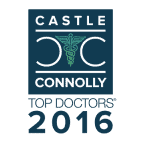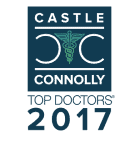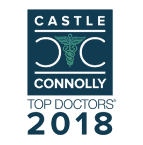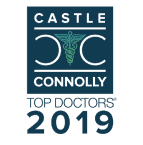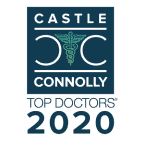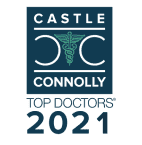When it comes to spinal care, having a doctor with expertise and trust matters. Dr. Hooman Melamed is a board-certified orthopedic spine surgeon in Beverly Hills with two decades of experience in providing patients with relief from neck, leg, and back pain through top-notch, personalized care. Known for his innovative and conservative approach to spine health, Dr. Hooman Melamed has built a highly regarded reputation both in Los Angeles and across the nation. Patients and peers alike have consistently recognized his outstanding work, naming him a Castle Connolly Top Doctor and Super Doctor multiple years in a row.
In addition to his clinical work, Dr. Hooman Melamed is a trusted medical expert who often appears on national programs such as Dr. Oz, The Doctors, and Fox News, sharing insights on the latest advancements in spine health. His focus remains firmly rooted in helping patients feel better, move freely, and participate in life fully and pain-free.
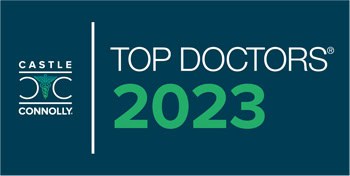
Dr. Melamed is known for his dedication and experience in treating the whole person, not just the symptoms. He believes in looking beyond the spine alone to identify any underlying issues that may affect healing, ensuring that each patient receives a treatment plan designed for true, lasting recovery. His work treating a full range of spine conditions combines the latest medical technology with a deep respect for each person’s overall well-being. Read Dr. Melamed’s bio to learn more about his education, experience, and techniques.


Conditions We Treat in Beverly Hills
Dr. Hooman Melamed offers the best possible care for a wide range of spinal conditions using cutting-edge tools and techniques to provide his patients with lasting relief. For every case and condition, his approach begins with a thorough evaluation to ensure an accurate diagnosis and treatment plan tailored to each person’s needs.
Dr. Melamed specializes in treating conditions such as herniated discs, bulging discs, degenerative disc disease, scoliosis, and other spinal deformities. His areas of focus also include sciatica, spinal stenosis, foraminal stenosis, and failed back surgery syndrome, providing solutions even for complex or previously untreated cases. Other conditions treated by Dr. Hooman Melamed include:
- Annular Tear
- Arthritis of the spine
- Bertolotti syndrome
- Bone spurs
- Canal stenosis
- Collapsed disc
- Degenerative joint or disc disease
- Disc extrusion or protrusion
- Herniated disc
- Facet joint disease
- Failed back surgery syndrome
- Pinched nerve
- SI joint pain (sacroiliac)
- Spine arthritis
- Spondylitis
- Spondylolisthesis
- Spondylosis
- Thoracic myelopathy
- Torn disc
Treatment Options in Beverly Hills
At The Spine Pro, treatment options range from conservative therapies to minimally invasive surgeries. Patients have access to procedures such as microdecompression and artificial disc replacement, as well as innovative options like regenerative cell therapy and the Intracept procedure. Dr. Hooman Melamed also offers minimally invasive spinal surgery, including cervical and lumbar surgery, scoliosis and deformity surgery, degenerative disc disease surgery, and outpatient fusion surgery.
No matter the treatment, Dr. Hooman Melamed and his team provide comprehensive support throughout the entire process, from diagnosis and treatment planning to post-procedure care and recovery. Educational resources and one-on-one consultations are also available to help patients understand all of their options and make informed decisions about their care.
TV Appearances
Dr. Hooman Melamed routinely appears on nationally syndicated television shows like The Doctors Show, where he provides expert opinion as well as treatment for guests, celebrities, and hosts, like Dr. Travis Stork of The Doctors Show.
Be sure to visit Dr. Melamed’s video library to view all of his segments.

Insurance and Billing
Understanding how insurance works shouldn’t add stress to your spine care journey. The office of Dr. Hooman Melamed is here to guide you through every step of the insurance and billing process so you always know what to expect.
Dr. Hooman Melamed accepts many major insurance plans, including Aetna, Humana, Cigna, BlueCross BlueShield, and others. We may be considered an out-of-network provider for some insurance providers; however, many patients are pleasantly surprised to learn that their plans still offer substantial coverage for surgery or other treatments. Being out-of-network doesn’t mean you’re out of options. It simply means that services are billed differently than with in-network providers. Our team is committed to helping you maximize your benefits and understand your potential out-of-pocket costs before you make any final treatment decisions.
Before any procedure, one of our Patient Engagement Specialists will review the details of your specific insurance plan, verify your benefits, and walk you through any prepayment or up-front costs. We believe in transparency at every step of the process and want to ensure you feel completely comfortable with your financial responsibilities from the very beginning.
After your treatment, our billing specialists will handle submitting claims to your insurance company on your behalf. This includes surgery charges, diagnostics, imaging, lab work, and any other services related to your care. Once your insurance processes the claim, they’ll determine your final patient responsibility, which may include a deductible, coinsurance, or copay.
If you have any questions along the way, our friendly staff is here to help so you can focus on your recovery, not your paperwork.
Book an Appointment With Dr. Melamed
Ready to take the next step toward relief? Contact our office today or request an appointment online to find out how Dr. Hooman Melamed can help you get back to living life pain-free.
